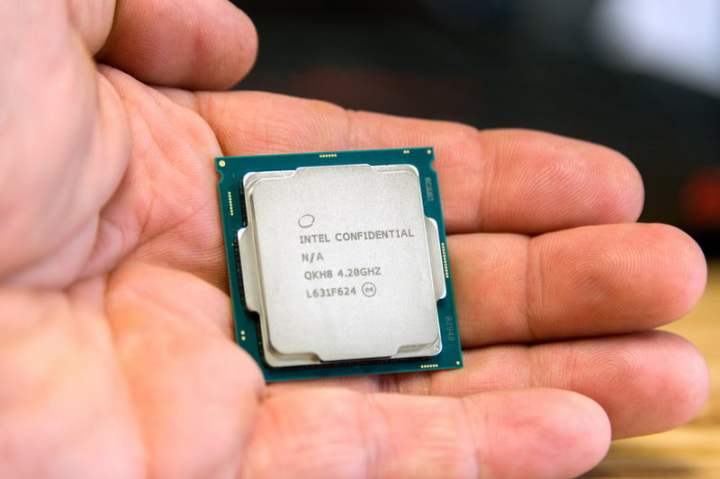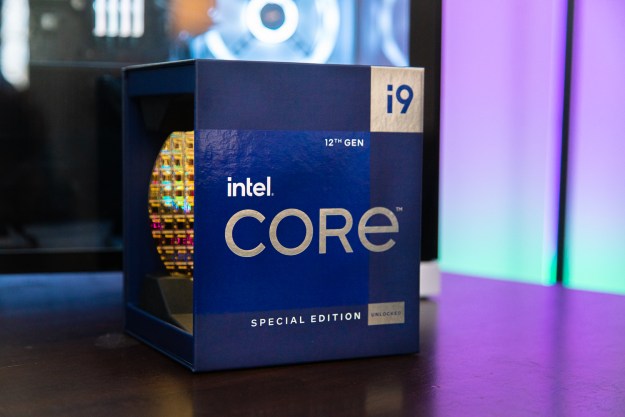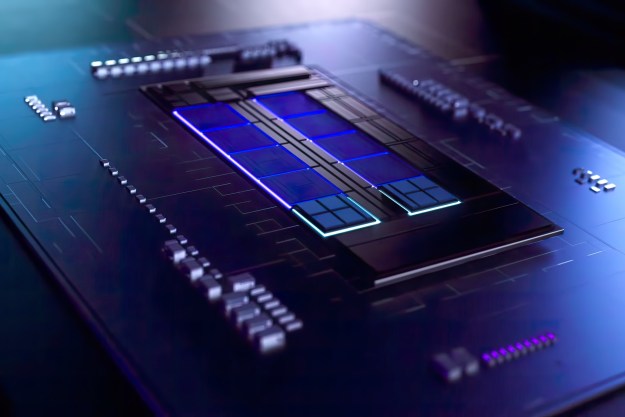
As we inch ever closer to the release of Intel’s next-generation CPUs, more and more details are emerging. Hot on the heels of a leak that suggests the Core i7 chips in the range won’t enjoy the benefits of hyperthreading, a new rumor claims that they and the top Core i9 CPUs, may have better cooling out of the box thanks to a soldered integrated heat spreader (IHS).
While many CPUs feature heatpaste between the actual core and the chunky metallic heatspreader exterior, many overclockers and enthusiasts will tell you that that’s far from the most efficient way to distribute excess heat. Some opt for a process called “delidding,” whereby they remove the heatspreader and replace the heatpaste with something better, but when the chip is soldered together instead, that’s no longer needed.
The two processors in particular which are said to enjoy this thermal benefit are the Core i7-9700K and the Core i9-9900K. German site Golem.de, via Hexus, claims that both have their IHS connected to the processor with solder, but that this benefit will be limited to the eight core CPUs in the ninth-generation range. That might be why the new CPUs are able to approach five gigahertz frequencies on a limited number of cores and could, in theory, unlock even greater overclocking potential for them for enthusiasts.
Six core CPUs will still use traditional heat paste, which may mean that a thermal improvement can be found by delidding them and replacing that material with one that is more conductive. That’s not always the case, as some chips just don’t benefit from it enough to risk potentially damaging your CPU.
All of this should be taken with a grain of salt, however, as almost all information about Intel’s next-generation CPUs is very firmly in the rumor camp for the time being. With an expected September release date, we won’t have long to wait to find out more and hear official details from Intel. Considering its recent track record of teasing higher performance than is realistically possible though, we’ll want to wait for independent reviews to make any concrete judgments on real-world performance.
Editors' Recommendations
- It just became the perfect time to buy a last-gen Intel CPU
- Intel 14th-gen Meteor Lake: architecture, specs, and performance
- Get ready to pay more for Intel’s next-gen CPUs
- Intel Raptor Lake CPUs: Everything we know about the 13th-gen processors
- The 6 best Intel CPUs of all time




